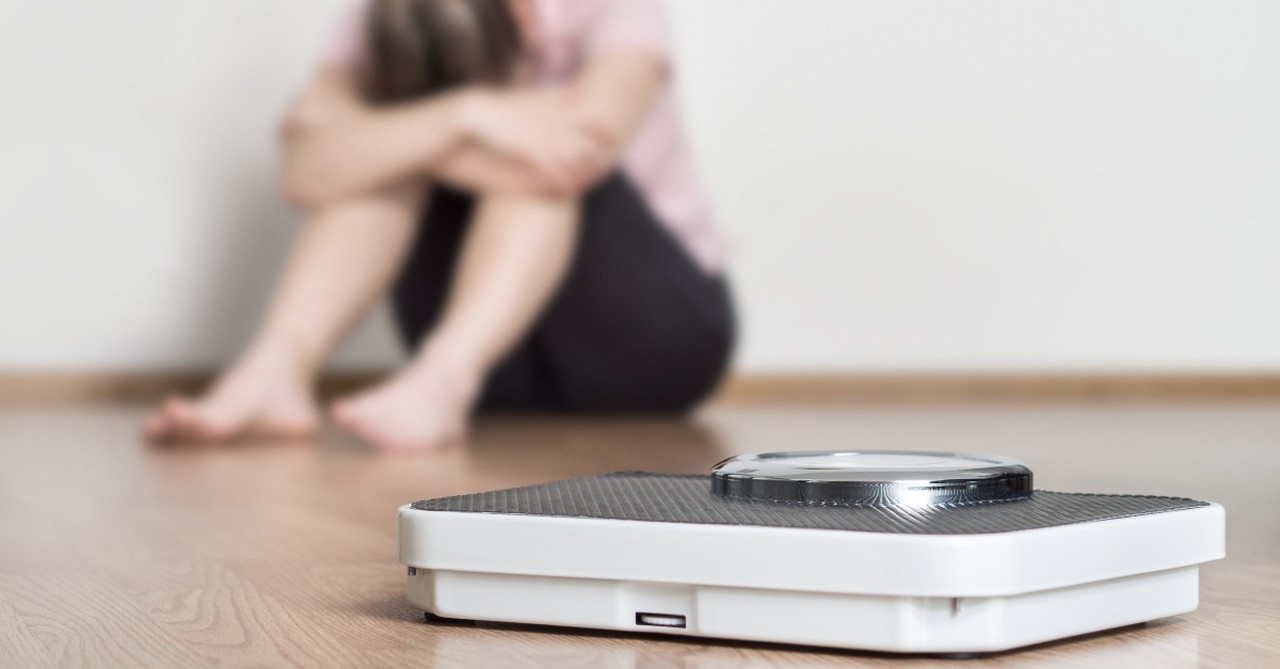
Many of us have struggled at some point with what we think about our body. There are times when focusing on our body is crucial to our physical well-being, such as when our general health demands it or when we seek to lower our risk of developing certain diseases.
However, wanting to maintain a healthy appearance is different from your overall body image.
Body image refers to your predominant thoughts and feelings about your body and how physically attractive you consider yourself to be. This includes what you think about your weight, height, or any other of your physical features, as well as how comfortable you are in your own skin.
According to the National Eating Disorder Association, your body image can be affected by a range of factors including what you actually see in the mirror, what you misperceive as your reflection, and what those around you—including those on social media—have you believe about your body verses their carefully edited pictures of “perfection.”
People with a positive body image have an accurate perception of how their physical features look and acknowledge that their physical appearance doesn’t determine their value as a person.
In contrast, people with a negative body image (also called a distorted body image) have an unrealistic view of their body that causes them to feel shame, anxiety, or self-consciousness. Research shows that people with a consistently negative body image are at a higher risk of developing certain conditions such as depression and eating disorders.
You begin forming your perceptions of your body in early childhood and, statistically, females are more likely to develop body image issues than males. Importantly, if left unaddressed, body image issues can last a lifetime.
This is why it’s essential that you develop and maintain a healthy view of your body, not only for your own well-being but for the well-being of any little ones learning how to feel about their bodies by what you say about yours.
As with anything else that matters, the Bible has a lot to say about our bodies. Here are 5 Bible verses to meditate on to retrain your mind about your body.
Photo Credit: ©GettyImages/AntonioGuillem
1. We Are Made in God’s Image

1. We Are Made in God’s Image
SLIDE 1 OF 5
“So God created mankind in His own image…male and female he created them. And God blessed them. And God said to them, “Be fruitful and multiply…and have dominion over…every living thing that moves on the earth.” Genesis 1:27-28 ESV
Is there any greater honor on earth than to be made in the image of God? As the Creator of heaven and earth, God could’ve chosen to make us look like anything He wanted. With this plentitude of choices at His fingertips, our Father chose to craft us in His own image.
But His blessings upon us did not stop there. God also entrusted us to be the caretakers of the world, His stewards here on earth. In serving God as His divinely appointed trustees, we’re to look after Creation in His name.
Since God is love (1 John 4:8) and we’re made in His image, we must reflect His love in our interactions with all of His creations, including our interactions with ourselves. Espousing a healthy body image celebrates our physical bodies as a gift from our loving Creator.
Moreover, we should consider that Jesus blessed the human form by taking that form Himself. Jesus lived and suffered as a man, allowing His physical body to die for us so that we might know how to live in our physical life to achieve glory in the eternal life.
When we reflect on the magnitude of being made in God’s image and that His only Son took on a human body to redeem our sins, it should fill us with gratitude for the bodies we were born with. We can honor our God-given bodies by adopting a healthy lifestyle that promotes a positive body image.
Photo Credit: ©Unsplash/Antonino Visalli
2. The Holy Spirit Dwells within Us

2. The Holy Spirit Dwells within Us
SLIDE 2 OF 5
“Or do you not know that your body is a temple of the Holy Spirit within you, whom you have from God? You are not your own, for you were bought with a price. So glorify God in your body.” 1 Corinthians 6:19-20.
Since the first two members of the Holy Trinity played a role in honoring our physical form, it should come as no surprise that so too does the third member—the Holy Spirit. Scripture reveals that God created our bodies, Jesus redeemed our bodies, and the Holy Spirit resides in our bodies.
In fact, from the beginning of humanity’s existence, God breathed His own breath (known as the breath of life) into us (Genesis 2:7). There’s no question that we should care for our bodies because we are the stewards of God’s creations.
However, we cannot turn this healthy duty to care for our bodies into an unhealthy obsession over the way we look. To do so would be to ignore Scripture’s assertion that our bodies are not our own and that we are to use our bodies to glorify God.
We can use our bodies to glorify God by focusing on treating our bodies as the “temple of the Holy Spirit” that the Bible tells us our bodies are. Think about the things that would defile a temple and those are the very things that you should avoid taking part in. This includes how you use the temple of your body to act and speak, and the things you let into the temple of your body through your eyes, mouth, and ears.
Treating our bodies like the temples that they are is no small feat. Luckily, the Bible gives us a roadmap to help. One way we can strive to keep our bodies fit for the Holy Spirit is by steering clear of situations that provoke sexual immorality (1 Corinthians 6:18), bitterness, anger, fighting, and gossip.
Instead, we should strive to practice compassion and forgiveness (Ephesians 4:31-32).
Photo Credit: ©GettyImages/ipopba
3. Too Much Emphasis on Our Looks Can Lead to Pride

3. Too Much Emphasis on Our Looks Can Lead to Pride
SLIDE 3 OF 5
“In his pride the wicked man does not seek him; in all his thoughts there is no room for God.” Psalm 10:4
When all we do is think about our looks, we risk becoming overcome by the sin of pride and, as the Bible makes clear, pride goeth before the fall (Proverbs 16:18). Pride tops the list of sins that God hates (Proverbs 6:16-17). The pride that the Bible condemns doesn’t refer to feelings of accomplishment over a job well done. Rather, pride in the Biblical sense refers to being so obsessed with yourself that your mind never turns to God and your heart never seeks Him (Psalm 10:4).
Perhaps pride is so loathsome to God because it was the first sin committed in the universe by none other than Lucifer himself. In particular, Lucifer became so consumed with pride over his God-given splendor that he gathered up an army of angels to help him rebel against God. This resulted in Lucifer’s expulsion from heaven, along with the expulsion of the other fallen angels (Ezekiel 28:17; Isaiah 14:13-14; Revelation 12:3-4, 9).
Pride was also the first sin committed by humanity. Satan ushered in humanity’s first sin by tempting Adam and Eve with much the same desire that caused his own fall—the prideful desire to be like God (Genesis 3:1-5).
Adam and Eve’s one act of disobeying God proved disastrous because it not only strained humanity’s relationship with God, but when Adam blamed Eve for giving him the forbidden fruit to eat, it caused our first parents to turn against each other as well (Genesis 3:12).
This shows how easily pride in ourselves can lead to conflict and division with others.
One way to determine whether your actions toward your body are rooted in pride or in a healthy respect of self is to weigh your intentions against God’s.
For example, when you obsess over changing your looks through such things as medically unnecessary plastic surgery, you should consider that you’d be unnaturally changing God’s design of your body.
Likewise, when you mistreat your body by engaging in such things as gluttony, drunkenness (Proverbs 23:20), and deceitful speech (Proverbs 12:22), you also run afoul of treating your body with the reverence that God commands (Romans 6:12-13).
Photo Credit: ©Pexels/Ismael Sanchez
4. Physical Training Has Value but Doesn’t Outweigh Spiritual Training

4. Physical Training Has Value but Doesn’t Outweigh Spiritual Training
SLIDE 4 OF 5
“For while bodily training is of some value, godliness is of value in every way, as it holds promise for the present life and also for the life to come.” 1 Timothy 4:8
Here, we learn that physical training versus spiritual training is all about priorities. While the Bible verse makes clear that spiritual fitness reigns supreme, it also teaches us that we shouldn’t focus entirely on strengthening our spirit to the neglect of strengthening our body.
To this end, we should exercise enough to keep ourselves as healthy as is within our control while keeping our spiritual fitness at the forefront of our minds.
To gauge how much exercise is too much, we should discern the motivation behind our desire to work out.
If we’re exercising to increase our health, fitness, and/or strength, then we can rest easy that we’re respecting our bodies as God expects us to. In fact, the better physical health we’re in, the better we can serve others as God desires for us.
On the other hand, if we’re already healthy, fit, and strong and yet obsess over getting even more sculpted and stronger out of vanity, then our reasons behind exercising have become unhealthy and run contrary to the way God wants us to treat our body.
Ultimately, the question we should ask ourselves is if our physical training supports or hinders our spiritual training. While bodily excellence can help us better enjoy our temporary life, we are warned that it is spiritual excellence we should strive for to be able to enjoy eternal life.
Photo Credit: ©Getty Images/Tero Vesalainen
5. Watch the Company You Keep

5. Watch the Company You Keep
SLIDE 5 OF 5
“Do not be deceived: ‘Bad company ruins good morals.’” (1 Corinthians 15:33).
The Bible is about relationships, the one we have with God and the ones we have with each other.
While the above Bible verse may not directly pertain to our bodies, no one can deny that other people’s words can heavily influence our estimation of our own physical appearance. Peer pressure, after all, doesn’t only happen to kids.
Knowing the pettiness of humans, God described for us the types of people we should avoid befriending, including:
- Disloyal people (Proverbs 18:24);
- Liars (Psalm 26:4);
- Gossipmongers and troublemakers (Proverbs 16:28); and
- Opportunists (Proverbs 19:6)
For this reason, you’d be wise to take an honest look at how the company you keep affects your thoughts and actions. The circle of friends with whom you choose to associate should make life sweeter, not more bitter.
Bad company can deter your spiritual growth by encouraging you to risk your physical health or by undermining your sense of self through baseless criticism dressed as concern.
Your circle should also be proud of you, not jealous. When you reach a milestone in your life, take notice of which friends are waiting at the finish line to congratulate you, and celebrate your accomplishment.
Even if no one is there for you, embrace God’s promise that He has a plan for you (Jeremiah 29:11), one that doesn’t include people who make you feel bad about yourself.
God formed you in your mother’s womb and you should take great pride in being so “fearfully and wonderfully made” (Psalm 139:13-14).
I encourage you to reflect on the Bible verses above and to challenge any thoughts that keep you from honoring your body and living for the glory of God!
Photo Credit: ©GettyImages/Prostock-Studio
Dolores Smyth is a nationally published faith and parenting writer. She draws inspiration for her writing from everyday life. Connect with her over Twitter @byDoloresSmyth.
Originally published December 30, 2020.







